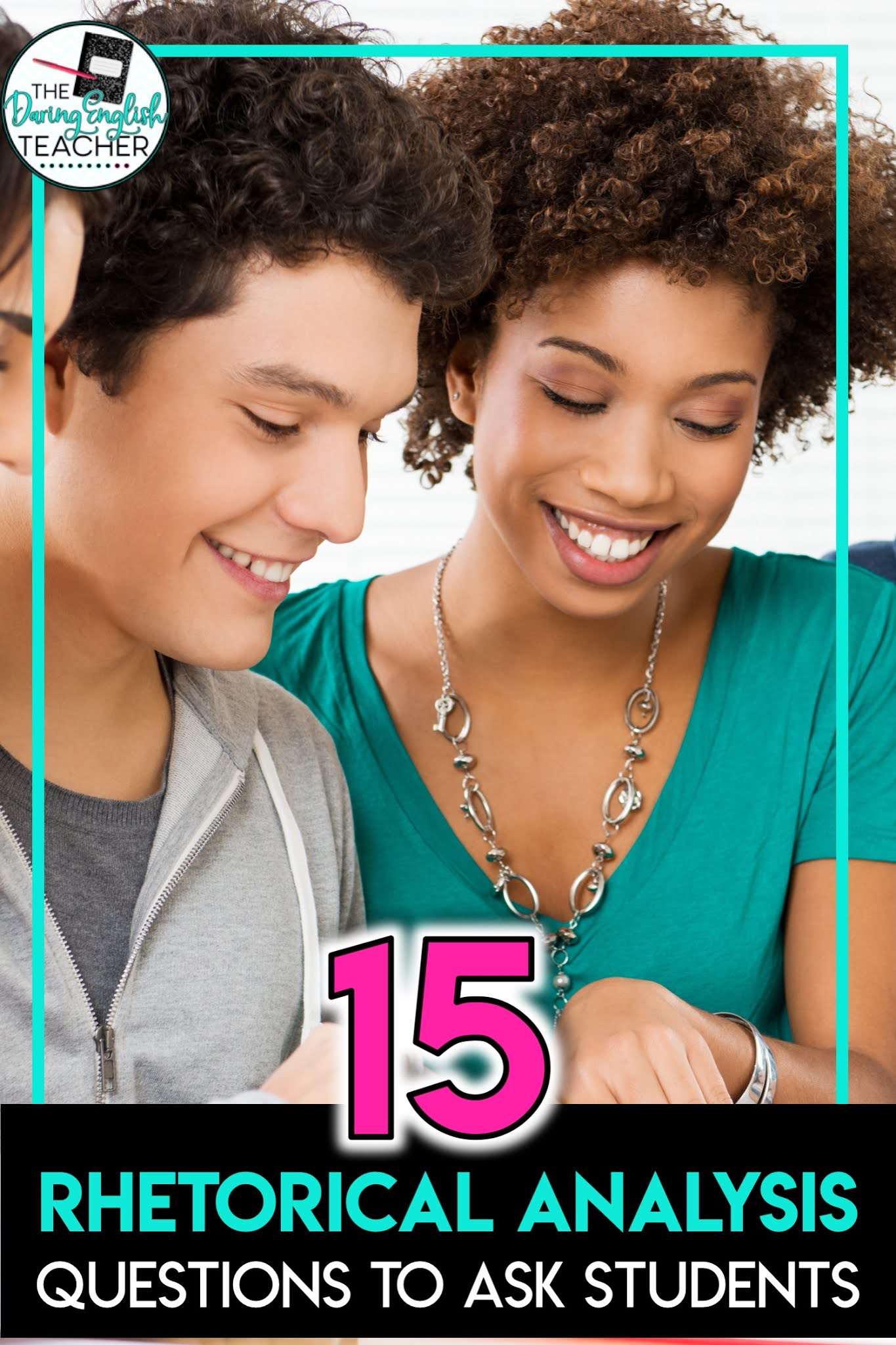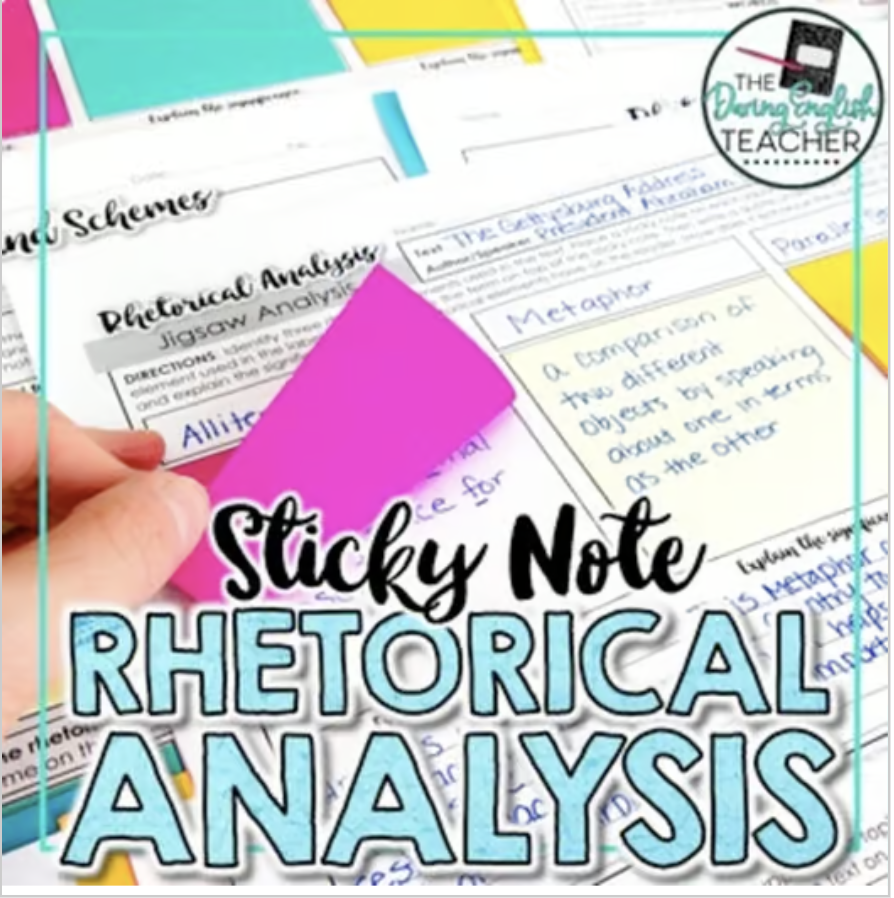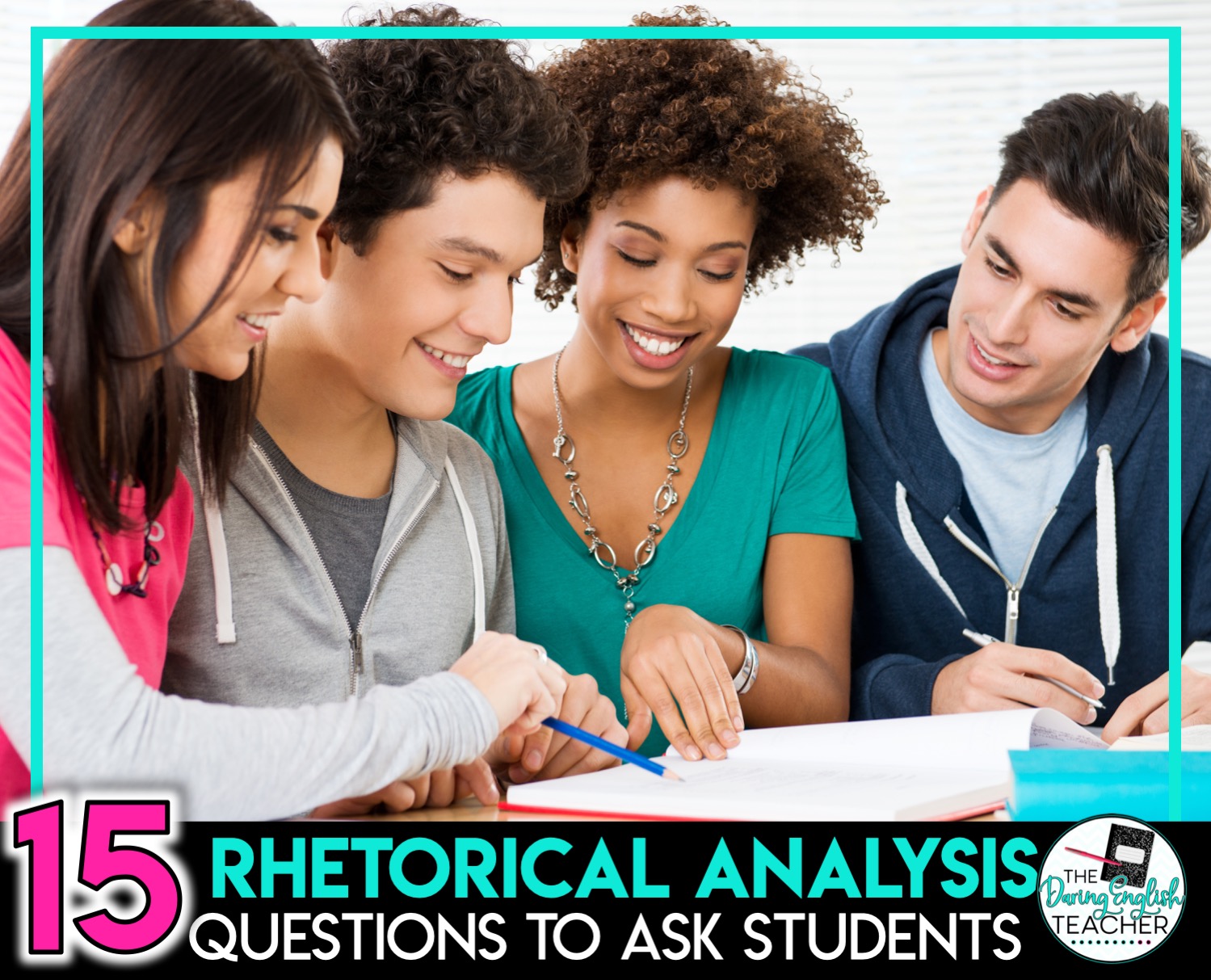I love teaching rhetorical analysis. It is one of my favorite units to teach because I love incorporating robust, relevant, and timely texts into my classroom, especially when timely speeches perfectly coincide with the classical literature we are reading. I use this rhetorical analysis unit in my classroom every year, and it helps me provide a solid foundation to my students.
When teaching rhetorical analysis, one of the most important things to keep in mind is not what the author or speaker says, but how the author or speaker says it and why it is so effective. Once you get beyond the main ideas and supporting details and really ask your students to look at, consider, analyze, and evaluate the effectiveness of what the author or speaker does, then you are genuinely analyzing a text for its rhetorical merit.
Teaching Rhetorical Analysis in the Secondary ELA Classroom
When I first teach rhetorical analysis to my students, I use direct instruction strategies. I provide my students with rhetorical analysis terms and examples. Then we begin analyzing and annotating text together. Usually, we will analyze a couple of texts together as a class, and then I release them to work in a small group or with partners. Before I have my students work entirely on their own, I first have them analyze and annotate a text individually for about ten minutes, and then share their findings with a partner. This helps students build their confidence.
If you are teaching rhetorical analysis, here are 15 questions you should ask your students about the text they are reading. These 15 questions are some of the questions included in my Rhetorical Analysis Task Cards.
15 Rhetorical Analysis Questions to Ask Your Students 
- What is the main idea or assertion of the text?
- Explain two different ways in which the author/speaker supports the main idea.
- How does the author/speaker establish ethos in the text?
- How does the author/speaker appeal to reason (logos)?
- How does the author/speaker appeal to emotion (pathos)?
- Is the evidence used to support the argument reliable? Explain.
- How does the tone affect the author/speaker’s credibility?
- What is the tone at the beginning, middle, and end of the text?
- What is one rhetorical device used in the text? Explain it’s effectiveness.
- Identify one example of figurative language used in the text. Explain it’s effectiveness.
- Does the author/speaker reveal any prejudices against people who might disagree? Explain.
- Was the author/speaker effective in achieving the purpose? Explain.
- In your opinion, what is the strongest element/part of the text/argument? Explain and provide evidence and reasoning.
- In your opinion, what is the weakest element/part of the text/argument? Explain and provide evidence and reasoning.
- Do you believe the author/speaker achieved the purpose? Explain your answer and provide evidence and reasoning in your response.
Be sure to also read my blog post about my favorite speeches for rhetorical analysis.
Teaching Rhetorical Analysis with Sticky Notes
 Increase student engagement and understanding with this rhetorical analysis unit. This unit includes everything and more that you’ll need to teach your students about rhetorical analysis, and it includes several rhetorical analysis activities.
Increase student engagement and understanding with this rhetorical analysis unit. This unit includes everything and more that you’ll need to teach your students about rhetorical analysis, and it includes several rhetorical analysis activities.
This hands-on sticky note rhetorical analysis includes an editable PowerPoint presentation with an entire week of direct instruction for rhetorical analysis, a sample speech to analyze with your students, and materials and writing assignments to use with any speech!
Your students will love these interactive and hands-on close reading organizers and scaffolded writing responses. Students will enjoy using sticky notes in class as they analyze complex speeches and nonfiction texts, and the materials are accessible enough for them to do rhetorical analysis.
This unit includes everything you need to be successful in teaching rhetorical analysis.
Here is what fellow teachers say:
⭐️⭐️⭐️⭐️⭐️ Extremely satisfied
“I used this resource to supplement my AP Lang. and Comp. class Rhetorical Analysis Unit. It had a lot of resources that were very easy to implement and provided different approaches to the rhetorical analysis essay.”
⭐️⭐️⭐️⭐️⭐️ Extremely satisfied
“This was so helpful in teaching my students to write a rhetorical analysis– I’ve written plenty in my life, but I don’t know that I was ever formally taught how, and have never had to teach this skill prior to this year. This was great not only for my students to learn, but to help give me a better understanding of process as well!”
⭐️⭐️⭐️⭐️⭐️ Extremely satisfied
“Kids are always excited whenever they get to use sticky notes, so this resource was a hit with my 11th graders – yes, 11th graders! I highly recommend as it helps students thoroughly dissect and understand the text.”


